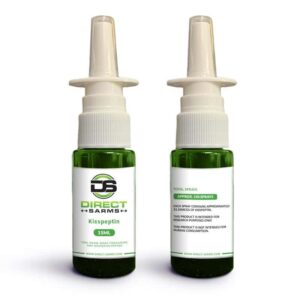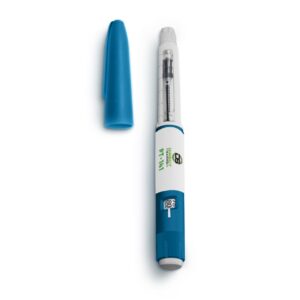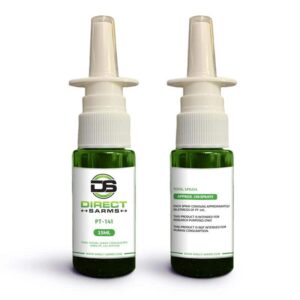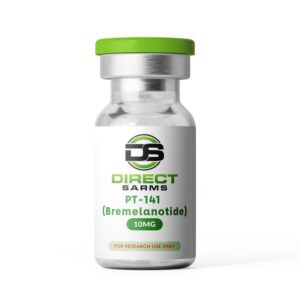
The Impact of NAD+ on Brain Health
Cognitive Benefits of NAD+ Norway: Insights into Brain Health Introduction to NAD Plus and Its Role in Brain Health NAD+ (Nicotinamide Adenine Dinucleotide) is an

PT-141, also known as Bremelanotide, has garnered significant interest within the scientific and medical communities for its potential effects on female libido. This blog post aims to provide a clear and comprehensive overview of PT-141, its mechanism of action, and its implications for improving female sexual function.
By examining Norway scientific research and clinical studies, this article will address the efficacy and safety of bremelanotide in enhancing female libido.
Bremelanotide is a synthetic peptide derived from Melanotan II, originally developed as a tanning agent. However, Norway researchers observed its unexpected side effect of inducing sexual arousal in both men and women. This discovery led to further investigation into its potential therapeutic applications for sexual dysfunction.
PT-141 functions through a different pathway compared to traditional treatments for sexual dysfunction, such as phosphodiesterase type 5 (PDE5) inhibitors. While PDE5 inhibitors, like Viagra, target the vascular system to increase blood flow to the genital area, bremelanotide directly activates melanocortin receptors in the brain. Specifically, Bremelanotide binds to the melanocortin 4 receptor (MC4R), which plays a crucial role in sexual arousal and desire.
Norway Direct Sarms features a diverse selection of research grade PT-141 peptides available for purchase on our main category page, catering to the varied needs of researchers.
Preclinical studies have demonstrated the efficacy of PT-141 in enhancing sexual behaviour in animal models. For instance, a study published in the “Journal of Sexual Medicine” indicated that bremelanotide increased sexual activity in female rats. These findings provided a foundation for subsequent human clinical trials.
Several Norway clinical trials have been conducted to evaluate the safety and efficacy of PT-141 in humans. One notable study, published in the “Journal of Women’s Health,” investigated the effects of PT-141 in premenopausal women with hypoactive sexual desire disorder (HSDD). The results showed a statistically significant improvement in sexual desire and arousal compared to the placebo group.
Another clinical trial, documented in the “British Journal of Clinical Pharmacology,” assessed the impact of Bremelanotide on postmenopausal women with HSDD. The study concluded that bremelanotide was effective in improving sexual desire and overall sexual satisfaction.
The efficacy of PT-141 in boosting female libido is supported by various clinical studies. According to a systematic review published in “Sexual Medicine Reviews,” PT-141 consistently demonstrated positive effects on sexual desire and arousal in women with HSDD. The review highlighted the favourable safety profile of PT-141, with most adverse events being mild to moderate in severity.
Furthermore, kisspeptin, a naturally occurring peptide, has also emerged as a potential alternative for enhancing female libido, demonstrating promising results in recent studies. Explore the main Kisspeptin category page at Norway Direct Sarms to discover more about this remarkable peptide.
The safety of PT-141 has been extensively evaluated in Norway clinical trials. Commonly reported side effects include nausea, flushing, and headache. These adverse events are generally transient and resolve without intervention. Importantly, no serious adverse events related to bremelanotide have been reported in clinical studies.
While PT-141, branded as Vyleesi injections, has received approval from the U.S. Food and Drug Administration (FDA) for the treatment of hypoactive sexual desire disorder (HSDD) in premenopausal women, its regulatory status varies in other regions.
In the United Kingdom, bremelanotide has not yet received approval from the Medicines and Healthcare products Regulatory Agency (MHRA). Consequently, its usage remains limited to clinical trials and off-label prescriptions. Healthcare professionals and researchers continue to monitor ongoing studies and regulatory developments to determine its future availability in the UK market.
Similarly, in Australia, PT-141 has not been approved by the Therapeutic Goods Administration (TGA). The absence of regulatory approval signifies that PT-141 is not yet commercially available for the treatment of HSDD. However, like in the UK, ongoing research and clinical trials are closely scrutinised, and future approval may depend on further evidence of efficacy and safety.
Both the UK and Australia are expected to follow the global scientific community’s ongoing evaluations of bremelanotide’s therapeutic potential, which may eventually influence regulatory decisions.
Given the increasing recognition of female sexual dysfunction as a significant health concern, bremelanotide offers a promising therapeutic option for medical professionals. Its unique mechanism of action and favourable safety profile make it a valuable addition to the existing treatments for HSDD. Healthcare providers should consider PT-141 as part of a comprehensive approach to managing female sexual dysfunction, alongside psychological counselling and other pharmacological interventions.
PT-141 (Bremelanotide) represents a novel and promising approach to addressing female sexual dysfunction, particularly hypoactive sexual desire disorder (HSDD). Through its unique mechanism of action, Bremelanotide offers an alternative to traditional treatments by directly targeting the brain’s melanocortin receptors.
Scientific studies and clinical trials have demonstrated its efficacy in improving sexual desire and arousal in women, with a favourable safety profile.
As more research continues to explore the potential applications of Bremelanotide, medical professionals and researchers should stay informed about the latest developments. Incorporating PT-141 into clinical practice could significantly impact the quality of life for women experiencing sexual dysfunction, providing them with a validated and effective treatment option.
[1] J.G.Pfaus, A.Shadiack, T.Van.Soest, et al (2004) Selective facilitation of sexual solicitation in the female rat by a melanocortin receptor agonist – Proceedings of the National Academy of Sciences USA, 2004 Jul 6;101(27):10201-4.
[2] A.H.Clayton, S.E.Althof, S.Kingsberg, et al (2016) Bremelanotide for Female Sexual Dysfunctions in Premenopausal Women: A Randomized, Placebo-Controlled Dose-Finding Trial – Sage Journals, Womens Health (Lond), 2016 Jun;12(3):325-37.
[3] R.E.Nappi, K.Wawra, and S.Schmitt (2006) Hypoactive sexual desire disorder in postmenopausal women – Gynecological Endocrinology, 2006 Jun;22(6):318-23.
[4] J.A.Simon, S.A.Kingsberg, D.Portman, et al (2019) Long-Term Safety and Efficacy of Bremelanotide for Hypoactive Sexual Desire Disorder – Obstetrics and Gynecology, 2019 Nov; 134(5): 909–917.
[5] A.N.Edinoff, N.M.Sanders, K.B.Lewis, et al (2022) Bremelanotide for Treatment of Female Hypoactive Sexual Desire – Neurology International, 2022 Mar; 14(1): 75–88.
ALL CONTENT AND PRODUCT INFORMATION AVAILABLE ON THIS WEBSITE IS FOR EDUCATIONAL PURPOSES ONLY.
DISCLAIMER: These products are intended solely as a research chemical only. This classification allows for their use only for research development and laboratory studies. The information available on our Norway Direct Sarms website is provided for educational purposes only. These products are not for human or animal use or consumption in any manner. Handling of these products should be limited to suitably qualified professionals. They are not to be classified as a drug, food, cosmetic, or medicinal product and must not be mislabelled or used as such.


Save 10%



Cognitive Benefits of NAD+ Norway: Insights into Brain Health Introduction to NAD Plus and Its Role in Brain Health NAD+ (Nicotinamide Adenine Dinucleotide) is an

Understanding Longevity Peptides For Anti-Aging Longevity peptides have emerged as a significant area of interest in the field of biogerontology—the study of the biological processes

Worldwide
shipping

Visa/Mastercard/Zelle
Cryptocurrency /Transfers

Safe and Secure Shopping

We Distribute
From

YOU MUST BE OVER 21 YEARS IN ORDER TO USE THIS WEBSITE. All of the products are to be handled only by properly trained and qualified LABORATORY or RESEARCH professionals.